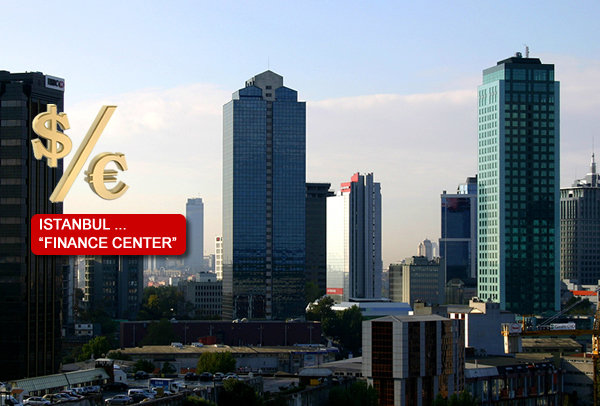Central Bank intervenes in the markets against sharp increase in dollar
In an effort to halt the sharp depreciation of the Turkish currency, the Central Bank on Monday intervened in the markets, cutting its daily dollar purchases and flexing reserve requirements for foreign currency accounts.
Central Bank Gov. Erdem Başçı. Hürriyet photoThe Central Bank’s move, which took immediate effect, has brought a halt to the auctions, in which the Bank purchased as much as $30 million from the markets per day. Before the measures were announced, the U.S. dollar climbed to as high as 1.734 Turkish Liras, while the euro was trading at over 2.485 liras.
The dollar and the euro continued to remain at high levels, after brief declines to just over 1.70 liras and 2.45 liras, respectively. At 5:30 p.m., the greenback was trading at near 1.722 liras, up 7.2 percent since the start of July. The European single currency was trading at around 2.471 liras, up 5.8 percent in the same period. The second part of the measures involves cutting the reserve requirements for banks in foreign currency deposits.
In an effort to halt the sharp depreciation of the Turkish currency, the Central Bank on Monday intervened in the markets, cutting its daily dollar purchases and flexing reserve requirements for foreign currency accounts.
The Central Bank’s decision, which took immediate effect, has brought a halt to the auctions, in which the Bank purchased as much as $30 million from the markets per day. Before the measures were announced, the U.S. dollar climbed to as high as 1.734 Turkish Liras, while the euro was trading at over 2.485 liras.
The dollar and the euro continued to remain at high levels, after brief declines to just over 1.70 liras and 2.45 liras, respectively. At 5:30 p.m., the greenback was trading at near 1.722 liras, up 7.2 percent since the start of July. The European single currency was trading at around 2.471 liras, up 5.8 percent in the same period.
The second part of the measures involves cutting the reserve requirements for banks in foreign currency deposits – a move that means lenders will have to park less foreign currency at the Central Bank coffers. The rate for one-year and more maturity deposits was cut from 11 percent to 10 percent, while the cuts for up to three-year deposits and over three-year deposits were by 1.5 and 2 percentage points, respectively.
The measures will provide an extra liquidity of $590 million to the markets, according to the Central Bank.
“It appears that the economy management will support an export-based growth model with this currency policy,” said Banu Kıvcı Tokalı of Destek Securities.
Indeed, a top exporter said the current balances are positive. “We think this level supports exports and moderates imports,” Mehmet Büyükekşi, chairman of the Turkish Exporters’ Assembly, told the Hürriyet Daily News. “For this correction to be balanced, the Central Bank is following the developments, showing that it will act if necessary.”
Büyükekşi said he expects a policy mix of “less valuable currency and low interest rates.” He also said the lira could depreciate further.
Rızanur Meral, chairman of the Confederation of Businessmen and Industrialists of Turkey, or TUSKON, said importers are worried. “The repayment of their current debt [in foreign currencies] will create a huge burden. They also do not know how much they’ll pay for new imports,” Meral said. “Meanwhile, exporters have seized an important advantage that they’ve been awaiting for years.”
“With the markets clearly losing faith in the current policies, there’s a growing risk that the sharp slowdown in growth that we had penciled in for the second half of 2012/2013 comes a little earlier than we have anticipated,” said Neil Shearing, the senior emerging markets economist at Capital Economics. “2012 could be the year the Turkish economy really disappoints.”
Gold, the safe haven for investors during times of volatility, broke another record at Istanbul’s Grand Bazaar as 24-carat gold bullion rose to 90.15 liras per gram. The benchmark Cumhuriyet gold was selling at 607 liras per coin. Gold also broke a new record in the global markets, as worries over the U.S. debt impasse continued. The precious metal surged to a record high above $1,620 an ounce, Reuters reported.
The Turkish Central Bank decision also helped lift equities, which had been battered by global and domestic concerns for some time. The Istanbul Stock Exchange’s main ISE-100 index closed Monday at 61,047 points, up 2.1 percent. The index is down 9.7 percent since the start of the year, compared to a gain of 5.2 percent for the S&P 500 index.
* Nurdan Bozkurt from Istanbul contributed to this report.
Turkish Central Bank in ‘double intervention’
25 July 2011
SOURCE: TURKISH DAILY NEWS




